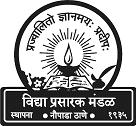Abstract Accepted
Understanding mind, brain and soul: what neurosurgery has to offer
Sunil K. Pandya*
Abstract
Surgery on the brain necessitates an understanding of its structure and functions. The philosophical neurosurgeon soon encounters difficulties when localizing the abstract concepts of mind and soul within the tangible 1300-gram organ containing 100 billion neurones.
Hippocrates had focused attention on the brain as the seat of the mind. The tabula rasa postulated by Aristotle cannot be localized to a particular part of the brain with the confidence that we can localize spoken speech to Broca’s area or the movement of limbs to the contralateral motor cortex. Galen localization of imagination, reasoning and judgement resided and memory in the cerebral ventricles collapsed once it was evident that the functional units – neurones – lay in the brain parenchyma.
Experiences gained from accidental injuries (Phineas Gage) or temporal lobe resection (William Beecher Scoville); studies on how we see and hear and more recent data from functional magnetic resonance studies have made us aware of the extensive network of neurones in the cerebral hemispheres that subserve the functions of the mind.
The soul or atman, credited with the ability to enliven the body, was located by ancient anatomists and philosophers in the lungs or heart and more recently in the pineal gland (Descartes) and generally in the brain. When the deeper parts of the brain came within the reach of neurosurgeons; the brainstem proved exceptionally delicate and vulnerable. The concept of brain death after irreversible damage to it has made all of us aware of ‘the cocktail of brain soup and spark’ in the brainstem so necessary for life. If there be a soul in each of us, surely, it is enshrined here.
……………………………………
*MS. Editor Emeritus, Indian Journal of Medical Ethics. Neurosurgeon, Department of Neurosurgery, Jaslok Hospital and Research Centre, Mumbai, India.
Correspondence: 11, Shanti Kuteer, Marine Drive, Mumbai 400020, INDIA.
Email: shunil3@gmail.com
Int Seminar MBC, Jan 2010. Accepted
